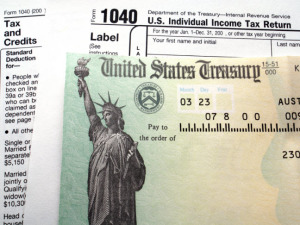 Today’s top story: What a missed mortgage payment can do to your credit. Also in the news: How to turn your retirement savings into income, tools that will simplify your life and save you money, and what we can learn about money from the movies.
Today’s top story: What a missed mortgage payment can do to your credit. Also in the news: How to turn your retirement savings into income, tools that will simplify your life and save you money, and what we can learn about money from the movies.
How Much Will My Credit Score Drop If I Miss a Mortgage Payment?
A single missed payment can have a major impact.
What the Oscar Movies Can Teach Us About Money
Show me the money!
How To Turn Your Retirement Savings Into Retirement Income
What to do with your nest egg.
5 Tools That Will Help You Simplify – and Save
Removing temptation from your inbox.
Top 5 Tax Scams of 2015 to Avoid
Don’t fall into a trap.


